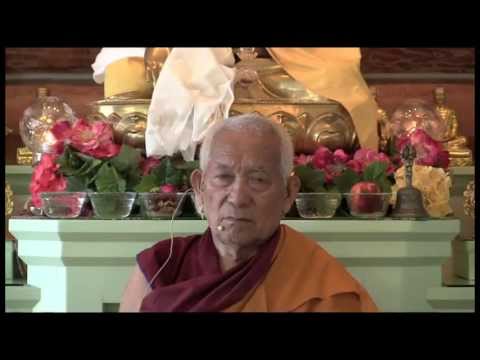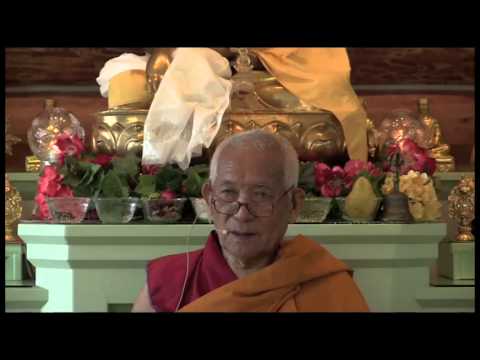Chapter 2: Verses 26 – 35
Part of a series of teachings on Aryadeva's 400 Stanzas on the Middle Way given on an annual basis by Geshe Yeshe Thabkhe from 2013-2017.
Questions and answers
- Summary of the benefits of meditation on death and impermanence
- Practices at the time of death
- Helping others to die peacefully
- Rebirth in a desire god realm and Dharma practice
- “Separating from home and family” in the context of Buddhist practice
- Verse 25 and meditation on subtle impermanence undermining attachment to “I” and “mine”
Verses 26-35
- How to meditate on the suffering nature of the body and eliminate strong attachment
- We need to take care of our health if we want to accumulate merit but we shouldn’t indulge or get excessively attached to our body
- How we create causes for suffering while looking for pleasure and comfort
- Even a comfortable body is a container of suffering so valuing it is just like valuing a foe
- The body will not become a natural source of pleasure no matter how much time and money we spend
- Physical and mental suffering cannot be overcome even by great pleasure
- Pleasure is less common sensation to our body than pain
Geshe Yeshe Thabkhe
Geshe Yeshe Thabkhe was born in 1930 in Lhokha, Central Tibet and became a monk at the age of 13. After completing his studies at Drepung Loseling Monastery in 1969, he was awarded Geshe Lharampa, the highest degree in the Geluk School of Tibetan Buddhism. He is an emeritus professor at the Central Institute of Higher Tibetan Studies and an eminent scholar of both Madhyamaka and Indian Buddhist studies. His works include Hindi translations of The Essence of Good Explanation of Definitive and Interpretable Meanings by Lama Tsongkhapa and Kamalasila's commentary on the Rice Seedling Sutra. His own commentary, The Rice Seedling Sutra: Buddha’s Teachings on Dependent Arising, was translated into English by Joshua and Diana Cutler and published by Wisdom Publications. Geshela has facilitated many research works, such as a complete translation of Tsongkhapa’s The Great Treatise on the Stages of the Path to Enlightenment, a major project undertaken by the Tibetan Buddhist Learning Center in New Jersey where he teaches regularly.


